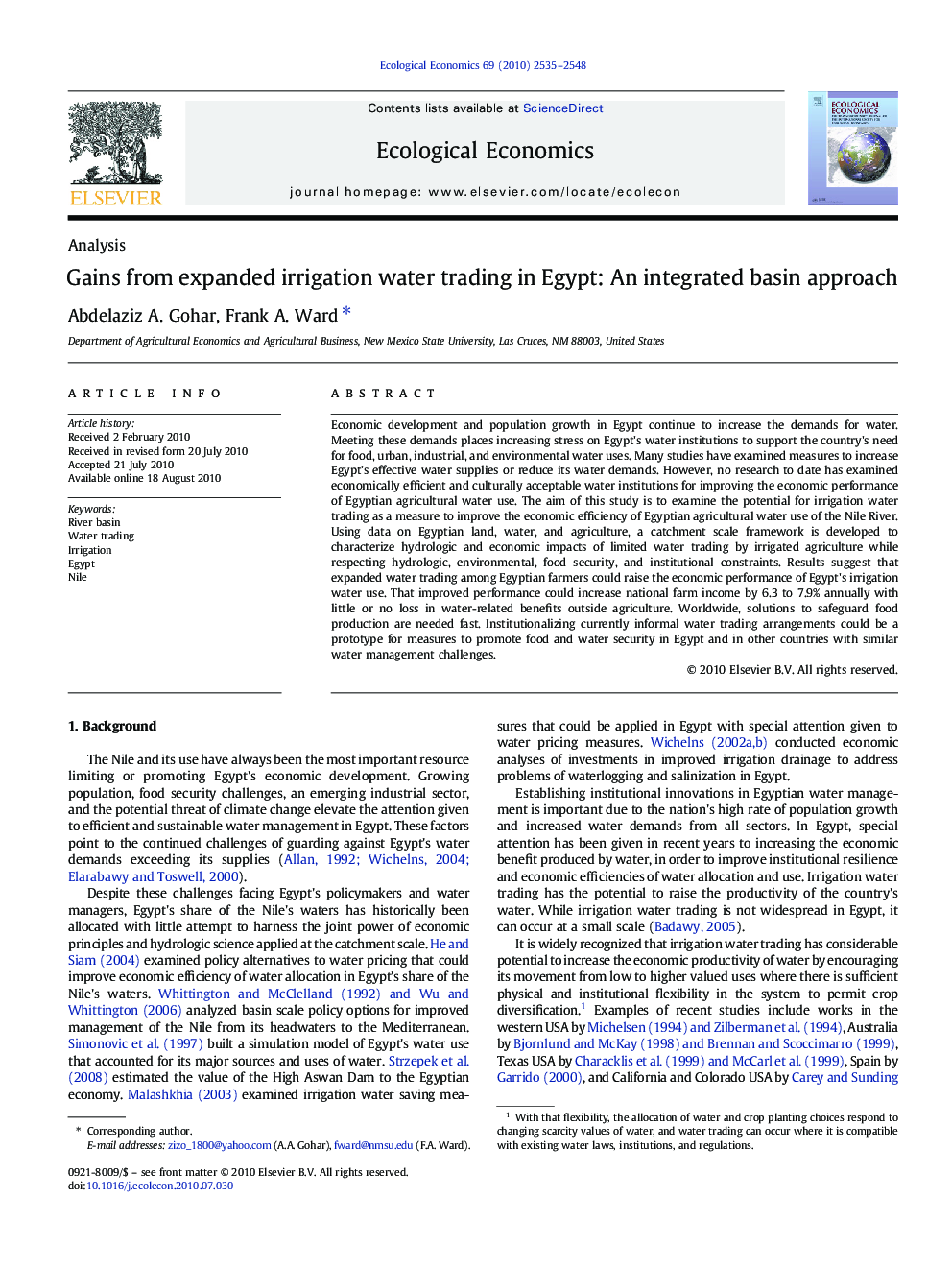| Article ID | Journal | Published Year | Pages | File Type |
|---|---|---|---|---|
| 5050824 | Ecological Economics | 2010 | 14 Pages |
Economic development and population growth in Egypt continue to increase the demands for water. Meeting these demands places increasing stress on Egypt's water institutions to support the country's need for food, urban, industrial, and environmental water uses. Many studies have examined measures to increase Egypt's effective water supplies or reduce its water demands. However, no research to date has examined economically efficient and culturally acceptable water institutions for improving the economic performance of Egyptian agricultural water use. The aim of this study is to examine the potential for irrigation water trading as a measure to improve the economic efficiency of Egyptian agricultural water use of the Nile River. Using data on Egyptian land, water, and agriculture, a catchment scale framework is developed to characterize hydrologic and economic impacts of limited water trading by irrigated agriculture while respecting hydrologic, environmental, food security, and institutional constraints. Results suggest that expanded water trading among Egyptian farmers could raise the economic performance of Egypt's irrigation water use. That improved performance could increase national farm income by 6.3 to 7.9% annually with little or no loss in water-related benefits outside agriculture. Worldwide, solutions to safeguard food production are needed fast. Institutionalizing currently informal water trading arrangements could be a prototype for measures to promote food and water security in Egypt and in other countries with similar water management challenges.
